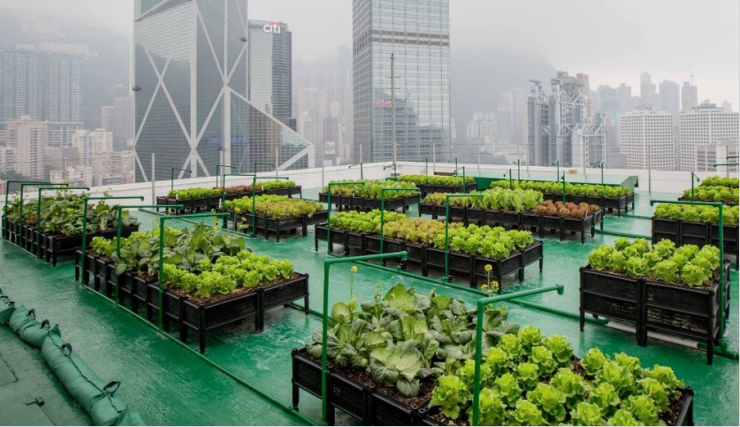Urban agriculture is a globally widespread practice that contributes to climate change adaptation, for example by reducing urban heat island effects, and to climate change mitigation, for example by fixing atmospheric nitrogen and carbon. However, extensive irrigation will consume a large part of the water used in households. [1]
In the face of growing water demand for agriculture, unpredictable rainwater events, and rising sea levels, our innovative system offers a resilient solution. By integrating rainwater harvesting, rainwater and seawater treatment, aswell as renewable energy, we ensure efficient water supply for agriculture while minimizing environmental impact.Our system prioritizes rainwater during wet seasons, reducing energy-intensive seawater treatment. When needed, seawater supplements the supply. Powered by a wind turbine farm, the system runs on clean energy, while a strategically designed breakwater protects against coastal erosion and rising seas. This holistic approach creates a resilient, efficient system for future urban development.
This page explores the integration of various civil systems, showcasing:
- Three distinct civil systems, along with their ontologies and parametric models.
- How these systems are unified into a cohesive Sustainable Water Treatment framework.
- The merging of individual ontologies into a single, unified ontology.
- Visual representation of the interdependencies through an integrated parametric model
References
[1] Zhang, Y., & Li, X. (2023). Advances in renewable energy integration: A comprehensive review. Renewable Energy, 180, 123-145. https://doi.org/10.1016/j.renene.2023.01.005
[2] Picture: https://www.agritecture.com/blog/2018/5/2/the-future-with-urban-farming
←Home page | Individual Systems →
